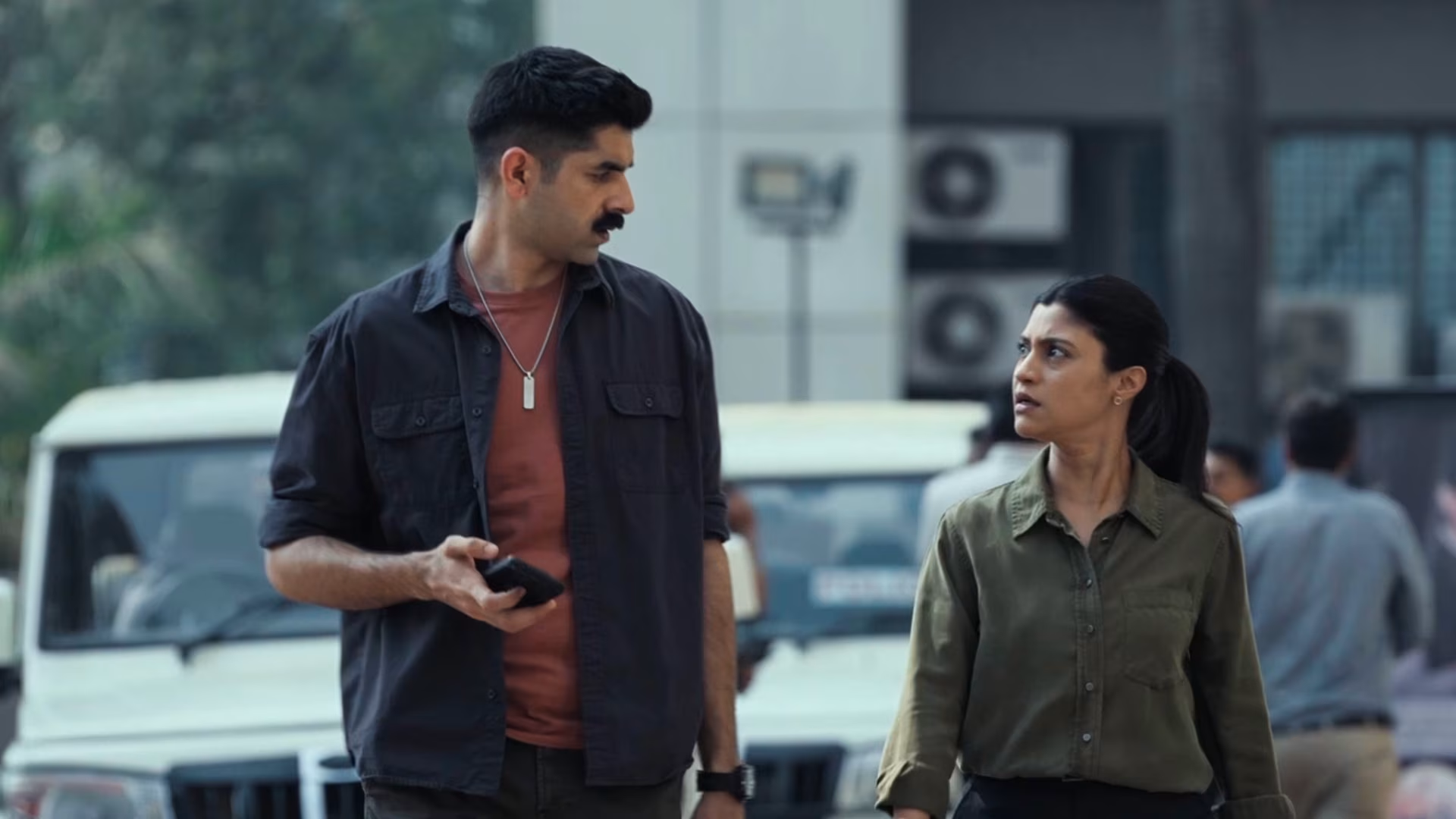The Search Series begins with an intriguing promise — a mysterious murder, a layered narrative, and an ensemble led by the ever-versatile Konkona Sen Sharma. Set against the backdrop of a bustling urban environment, the show’s tone captures the chaos of digital-age investigation. However, beneath its stylish production lies a familiar formula that slightly dilutes its potential.

A Story Rooted in Intrigue and Emotion
The series opens with the discovery of Naina’s murder, drawing the viewer into a tightly woven mystery. The screenplay initially grips you with its intelligent dialogues and emotional intensity. Each episode reveals fragments of the truth, making audiences question every character’s motive.
Despite a strong setup, Search: The Naina Murder Case eventually gives way to predictable OTT tropes — over-dramatization, unnecessary twists, and prolonged subplots. Yet, Konkona Sen Sharma’s magnetic presence holds the narrative together. Her nuanced portrayal of a woman battling both personal and professional conflicts makes the story compelling, even when the script falters.
How Studiovity AI Could Elevate a Series Like Search
Producing a thriller like Search Series requires precision, time management, and strong creative collaboration. That’s where Studiovity AI steps in. Its advanced pre production software streamlines every stage of filmmaking, from idea development to final scheduling.
With tools like script breakdown and film scheduling, creators can map emotional arcs, character timelines, and shoot priorities efficiently. In a project such as Search, where tone and pacing drive the story, having AI-powered planning ensures consistency and accuracy across episodes.
Moreover, Studiovity’s shot list and call sheet features help the cast and crew stay aligned. Each scene’s emotional tone, lighting, and camera movement can be pre-planned, allowing directors to focus on performance and atmosphere rather than logistics.
Konkona Sen Sharma: The Powerhouse Performer
Konkona Sen Sharma carries the emotional weight of Search: The Naina Murder Case. Her character, both vulnerable and strong, showcases the conflict between truth and perception. Every expression adds depth to her role, proving once again why she is one of India’s finest performers.
Even when the writing leans into clichés, her delivery and restraint maintain authenticity. The supporting cast does a decent job, though the writing could have offered them more layers to explore.
This imbalance between strong acting and uneven writing is where advanced planning tools like Studiovity AI could make a difference — ensuring narrative structure, scene pacing, and dialogue delivery remain consistent throughout production.

Visuals and Direction: Stylish but Overextended
Visually, Search Series is a treat. The cinematography captures the tension of modern urban life — dimly lit corridors, reflective glass offices, and chaotic streets. These visuals add depth to the story, making the investigation feel both intimate and public.
However, certain sequences feel stretched, diluting the intensity. This could have been avoided through tighter film production calendar management, something Studiovity’s AI system excels at. By connecting creative intent with logistical execution, filmmakers can maintain rhythm without losing emotional energy.
Sound and Editing: Effective but Uneven
The background score complements the story well, creating suspense without overdoing it. Editing, however, occasionally struggles with pacing. A few scenes linger too long, reducing tension instead of building it.
AI-assisted production planning, such as Studiovity’s timeline and editorial tracking tools, could help balance post-production flow. By aligning the call sheet data with the editing schedule, teams can maintain narrative continuity while optimizing runtime.
Themes of Technology, Truth, and Morality
Search: The Naina Murder Case explores how technology shapes truth in the digital age. Social media speculation, fake news, and public perception play major roles in the story. These modern dilemmas are what make the Search Series relevant and thought-provoking.
It also exposes the paradox of human connection in an era dominated by screens. Each character hides behind curated digital identities, echoing a familiar theme — we are more connected than ever, yet more isolated within our truths.

Studiovity AI: Bridging Technology and Storytelling
Just as Search Series examines the interplay between tech and emotion, Studiovity AI merges creativity with intelligent workflow design. By offering filmmakers tools to visualize, plan, and execute every detail, it enhances storytelling clarity.
From film scheduling to script breakdown, Studiovity helps teams maintain emotional continuity and narrative focus. If a show like Search had utilized such precision tools, its strong ideas could have been supported by tighter execution.
Final Verdict: Brilliant Acting, Uneven Storytelling
Search: The Naina Murder Case is an engaging but inconsistent thriller. Its brilliance lies in Konkona Sen Sharma’s performance and its thought-provoking premise. Yet, it occasionally stumbles under the weight of familiar streaming clichés.
Still, it remains a worthy watch for those who enjoy layered characters and moral complexities. And as AI-driven production tools like Studiovity continue to evolve, they hold the potential to transform such ambitious storytelling into something even more refined.